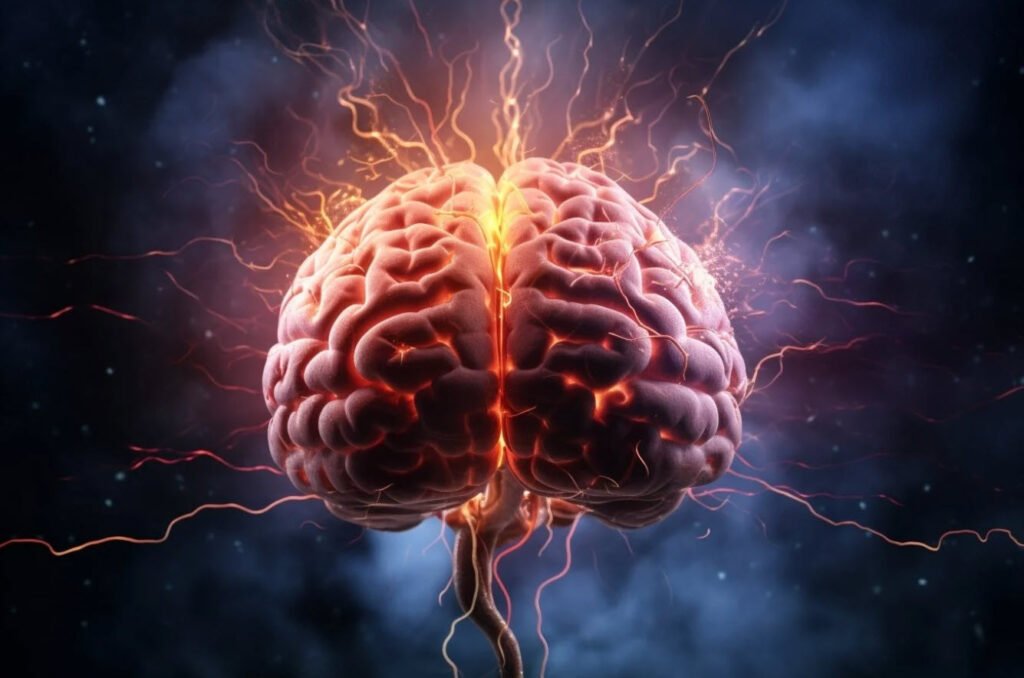
The field of neuroscience and brain-related research is a complex and fascinating area of study, filled with acronyms that can often be overwhelming for those not familiar with the terminology. To demystify this world of brain science, we’ve compiled a glossary of common acronyms related to the brain and neuroscience.
Whether you’re a student, a healthcare professional, or simply interested in the inner workings of the brain, this glossary will help you navigate the often intricate terminology.
- ALA: alpha-linolenic acid
a type of essential fatty acid and omega-3 fatty acid that is found in nuts, canola oil, flaxseed, and other plant foods - ALC: Acetyl-l-carnitine
the supplemental form of the amino acid carnitine, which helps brain cells produce energy - BDNF: brain derived neurotrophic factor
a protein that helps stimulate neurogenesis and increase feelings of optimism and good mood - BMI: body mass index
a value derived from a person’s height and weight that can indicate whether someone needs to lose, gain, or maintain weight for optimal health - BPA: bisphenol-A
an industrial chemical found in some plastics and other products that can be harmful to physical and cognitive health - CBT: cognitive behavioral therapy
a type of psychotherapy that helps address underlying thought and behavior patterns that can be harmful to cognitive, mental, and emotional health - CoQ10: coenzyme Q10
an antioxidant often taken as a supplement that helps protect cells from damage and aids in metabolism - CPAP: continuous positive airway pressure
a form of therapy that helps treat patients suffering from obstructive sleep apnea - CRP: C-reactive protein
a substance produced by the liver in response to inflammation - CTE: chronic traumatic encephalopathy
a progressive degenerative brain disease found in people with a history of repetitive brain trauma, most notably in football players and military vets - DHA: docosahexaenoic acid
a type of essential fatty acid and one of two marine omega-3 fatty acids that is found primarily in seafood, meat, and some plant-based sources like seaweed and algae - DHEA: dehydroepiandrosterone
a steroid hormone that helps produce testosterone and estrogen - EEG: electroencephalography
a noninvasive procedure that measures the electrical activity inside the brain without the use of radiation - EFAs: essential fatty acids
a type of fat critical to physical and cognitive function that the body does not manufacture, necessitating consumption through diet and/or supplements - EGCG: epigallocatechin gallate
an antioxidant found primarily in green tea that helps to protect cells from oxidative stress and lowers inflammation - EMFs: electromagnetic fields
invisible areas of energy that contain lowlevel radiation, emitted by electrical equipment and wireless transmitting devices like cell phones, computers, WiFi networks, and microwave ovens - EPA: eicosapentaenoic acid
a type of essential fatty acid and one of the two marine omega-3 fatty acids that is found primarily in seafood - GABA: gamma aminobutyric acid
a naturally occurring amino acid and neurotransmitter often taken as a supplement to help reduce anxiety and promote sleepiness - HBOT: hyperbaric oxygen therapy
a type of therapy in which a person breathes oxygen-rich air in a highly pressurized chamber, making it possible for the lungs to absorb more oxygen - HDL: high-density lipoproteins
frequently called the “good” cholesterol, HDL helps carry cholesterol to the liver, where it can be removed from the body - HIIT: high-intensity interval training
a type of anerobic training that includes fast-paced intervals to help increase fat metabolism and improve pulmonary and cardiovascular function - IQ: intelligence quotient
a test created by psychologists that assesses academic progress based on a series of cognitive tests - LCTs: long-chain triglycerides
a type of fat found in most fatty foods like butter, vegetable oil, meat, and dairy - LDL: low-density lipoproteins
frequently called the “bad” cholesterol, LDL in high levels can lead to a buildup of cholesterol in the bloodstream - MCTs: medium-chain triglycerides
a type of fat found primarily in coconut and palm kernel oils that is shorter in structure and more easily metabolized by the body than long-chain triglycerides - MIND: Mediterranean-DASH Intervention for Neurodegenerative Delay
a type of diet developed by researchers at Rush University Medical Center to help reduce the risk of neurodegenerative disease and cognitive decline - NAC: N-acetylcysteine
the supplemental form of the amino acid cysteine and a powerful antioxidant that can help in supporting a balanced mood - NSAID: non-steroidal anti-inflammatory drugs
a class of medicine that includes aspirin and ibuprofen often taken to help reduce pain - NVT: neurovisual training
a type of cognitive training that uses simulators, computer screens, and virtual reality headsets to challenge eye movements and increase overall optical skills - PCBs: polychlorinated biphenyls
a group of industrial chemicals harmful to physical and cognitive health, often found in seafood products - PS: phosphatidylserine
a fatty substance often taken as a supplement that is responsible for healthy nerve function - qEEG: quantitative electroencephalography
an analysis of the brain, also known as “brain mapping,” that uses electroencephalography to determine electrical activity inside the brain - SPECT: single-photon emission computed tomography
a functional nuclear imaging technique that allows doctors to analyze blood flow to the brain - TSH: thyroid-stimulating hormone
a hormone measured by a TSH test that can help indicate how well the body’s thyroid is functioning








